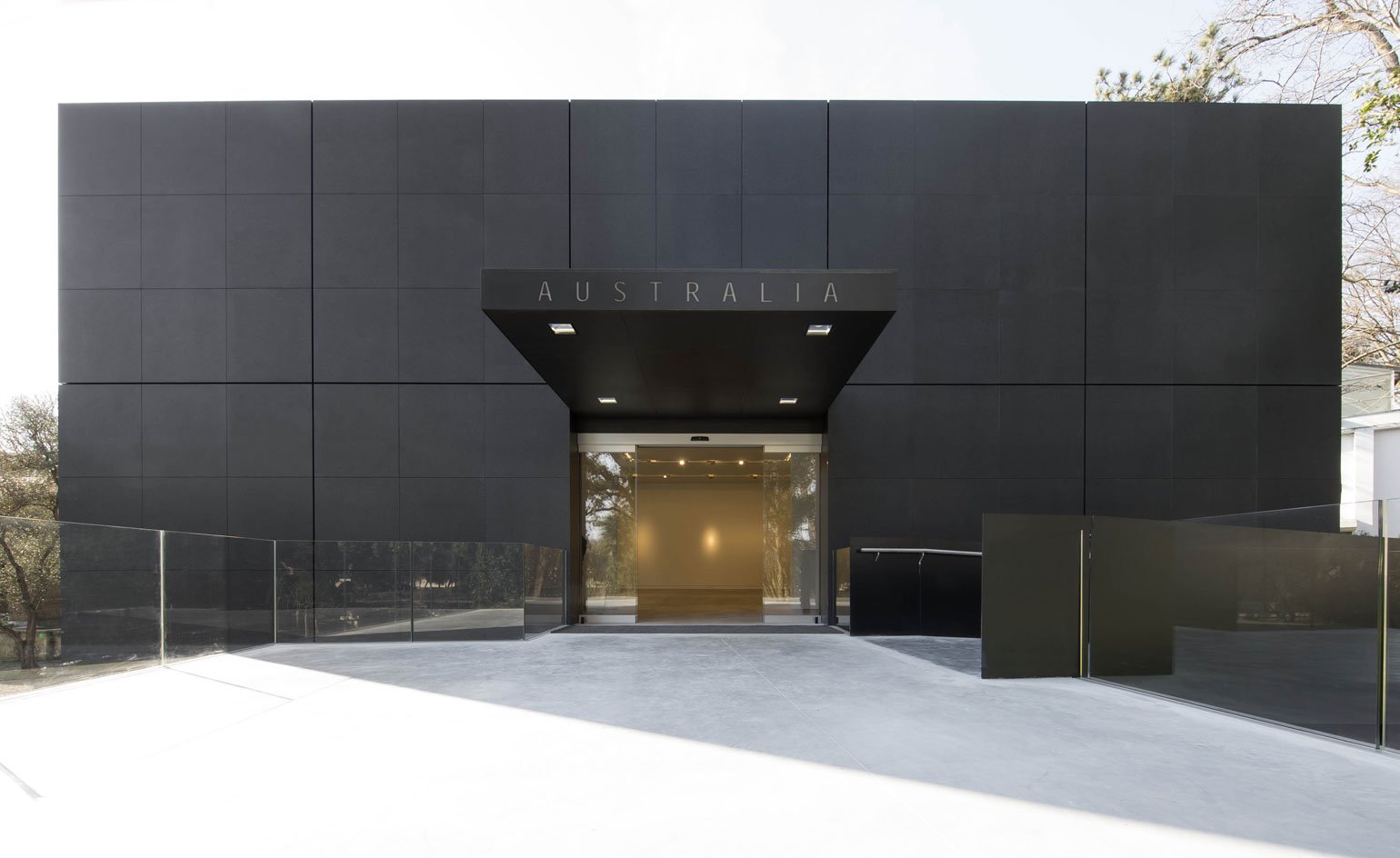
With the Venice Biennale fast approaching, Australia has completed work on its new national pavilion, designed by Melbourne-based architects Denton Corker Marshall.
Australia has participated in the Biennale since 1954, and has operated its own national pavilion since 1988, when a structure from Philip Cox, meant to be temporary, opened in the Giardini. That space was “designed around two trees and on split levels,” and “was difficult for some artists to show in, particularly as art practice moved away from paintings on walls and towards sculptural and installation pieces,” founding partner John Denton told Wallpaper.
The country’s new building is the first 21st-century addition to the 29 nation-strong Giardini, and will make its debut at the Biennale’s 56th edition next month (see Venice Biennale Moves to May, Encroaching on Frieze NY Slot and The 2015 Venice Biennale List of Artists Is Out—See Our Exclusive).
The pavilion is designed as a white box, presumably a play on the stereotypical “white cube gallery,” ensconced within a larger granite black box that features adjustable panels that open and close based on the needs of exhibitions.
“Our idea is to create a simple yet confident, memorable, powerful pavilion,” where “architectural expression” does not compete with “display content,” said the firm in a statement.
The first artist to present in the space will be Fiona Hall, whose multi-sensory sculptural installation “Wrong Way Time” will incorporate hundreds of small-scale works.
Curated by Linda Michael, the exhibition is based on the themes of global politics, finances, and the environment. Hall has expressed her intention to explore “a minefield of madness, badness, and sadness in equal measure.”
“Though Hall responds to the perilous state of the environment or shared anxieties about the future,” Michael noted, “her exhibition will be life-affirming, its own vitality in perverse distinction to the subjects it ranges across.”